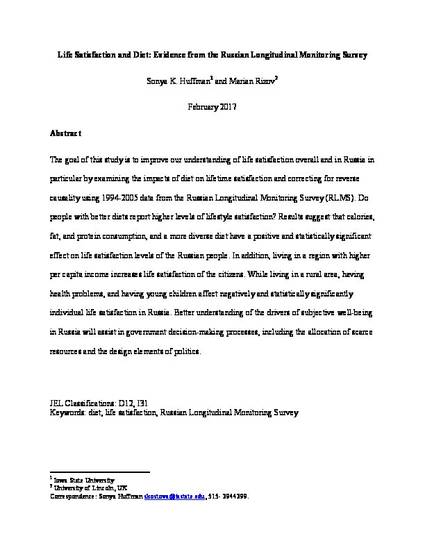
The goal of this study is to improve our understanding of life satisfaction overall and in Russia in particular by examining the impacts of diet on lifetime satisfaction and correcting for reverse causality using 1994–2005 data from the Russian Longitudinal Monitoring Survey (RLMS). Do people with better diets report higher levels of lifestyle satisfaction?
Results suggest that calories, fat, and protein consumption, and a more diverse diet have a positive and statistically significant effect on life satisfaction levels of the Russian people. In addition, living in a region with higher per capita income increases life satisfaction of the citizens.
While living in a rural area, having health problems, and having young children affect negatively and statistically significantly individual life satisfaction in Russia. Better understanding of the drivers of subjective well-being in Russia will assist in government decision-making processes, including the allocation of scarce resources and the design elements of politics.
Available at: http://works.bepress.com/sonya-huffman/31/
